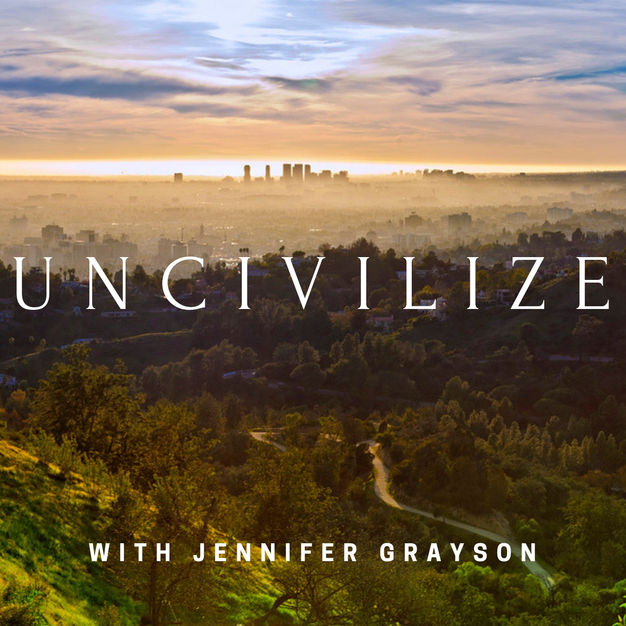
Uncivilize
Jennifer Grayson
Uncivilize is a journalistic exploration of the human rewilding movement—bringing you the stories of pioneers who have “left” our modern industrialized world behind to forge radically alternative lives in the 21st century. Using the long lens of human history (read: evolutionary biology, anthropology, indigenous knowledge and cultural history), each episode examines a future existence that could not only restore balance to an imperiled planet, but reclaim humanity’s original, inborn connection to the natural world. Hosted by Los Angeles-based environmental journalist and award-winning author (UNLATCHED, 2017 Rachel Carson Environment Book Award) Jennifer Grayson. Theme music: Paul Damian Hogan. Photo by April K / CC BY 2.0. www.jennifergrayson.com
- 1 hour 18 minutesEat From Where You Live - Daniel Vitalis
It couldn’t be more perfect that for this last episode of Uncivilize, my guest is the very person who inspired me to start the show: Daniel Vitalis, former host of the immensely popular and provocative Rewild Yourself Podcast. Being interviewed by Daniel for Rewild Yourself (Episode 134) was a revelation, because until that introduction, I hadn’t known that the seemingly disparate areas that had enthralled me since my childhood—exploring the wilderness, environmental conservation, anthropology, ancestral peoples, and a general aching to have lived at an earlier time in our human existence—had a name, let alone had converged into a movement: rewilding.
Much has happened since that epiphany more than two years ago, especially for Daniel, who not only found love and got married but dove deeper into another love: hunting, fishing, foraging and food. From that came WildFed, his new culinary adventure show and podcast that hopes to connect people with their local landscapes—not to mention 3 million years of human history—by opening their eyes to sustainably harvesting, cooking and eating wild food.
Here’s what we talk about:
-Daniel’s recent wild-food wedding
-Finding the balance between the modern and the primitive
-Connection to the landscape through food
-The problem with rugged individualism
-“We’re at risk of losing some very fundamental human technologies”
-Daniel’s non-hunting childhood
-Urban vegans, and making the case for hunting
-Wild turkeys, leeks and fiddleheads: Daniel’s first harvest
-Bear fat!
-Hunting in the United States: What you need to know
-The making of WildFed
-How to find your wild food niche, no matter where you liveCheck out the WildFed Podcast (available wherever you get your podcasts) and go here to watch trailers for and order Season 1 of the WildFed show. You can also follow Daniel and all his happenings on his website, as well as on Facebook and Instagram.
Thank you for listening to and supporting this show over the past two years! You can subscribe on iTunes to catch up on all 35 episodes. (If you’ve enjoyed the show, I always appreciate good ratings and reviews. It will help me with my next project.) The theme music is by Paul Damian Hogan.
2 January 2020, 8:01 am - 37 minutes 30 secondsThe Journalist-Farmer - AC Shilton
This week, I bring you the delightful AC Shilton, the investigative journalist of Netflix’s “The Innocent Man” fame who recently added farmer to her resume: Last year, the self-described city kid and her park ranger husband went all in on their bucolic fantasy, purchasing a 45-acre fixer-upper ranch in rural Tennessee.
Here, AC shares the real story of how she now divides her day between tending chickens and penning pieces for the likes of The New York Times and Outside magazine (spoiler: it’s not easy). She also dishes on learning to farm by the seat of her pants, prepping her farm for climate resilience, and why farming may be the perfect antidote to our modern scourge of arrival fallacy.
Here’s the rundown:
-A day in the life of an investigative journalist–farmer
-What it really costs to start a small farm
-“This has brought me more joy than anything I could have ever imagined”
-Pastured eggs, honey and Dexter cattle
-Planning her farm with climate change in mind
-Learning to farm as city kids
-Arrival fallacy
-Rural loneliness, recent injuries, and advice for wannabe farmers5 December 2019, 8:01 am - 53 minutes 45 secondsThe Journey to Wild Abundance - Natalie Bogwalker
I had a big birthday on Tuesday, and one of my wishes is to travel to the mountains of Southern Appalachia to take Natalie Bogwalker’s immersive women’s carpentry class (followed by perhaps her tiny house building class). If you haven’t yet heard of Natalie, prepare to be amazed: A trailblazer in all things rewilding, she co-founded Firefly Gathering and is now the founder and director of Wild Abundance, a one-of-a-kind permaculture and homesteading school outside of Asheville, N.C.
There, from her working eco-homestead, she not only builds but forages, gardens, crafts, and raises her young daughter, all while teaching an abounding offering of earth-based living classes with her partner Frank and a community of devoted instructors. I felt honored that Natalie found time last month to step away from it all (including the launch of her groundbreaking online hide tanning course; seriously, check it out) to talk with me about the incredible life she’s created and the Wild Abundance student experience.
Some of what we talk about:
-Laterlife motherhood and the ultimate childcare co-op
-Growing up in the woods of Washington state and the accident that changed her life
-Living in a squat in Barcelona and Wild Roots
-The rewilding movement, 15 years ago
-Firefly Gathering, Wild Abundance and her women’s carpentry classes
-What the future holds
-Her new online hide tanning courseLearn more about Natalie and the Wild Abundance class offerings on the Wild Abundance website. Natalie is also an inspiring presence on Instagram and Facebook. And watch the trailer, below, to get a glimpse of her new Online Hide Tanning Course (use coupon code BUCKSKIN for 20% off through October 30).
24 October 2019, 7:01 am - 44 minutes 45 secondsHow the Bow and Arrow Changed Everything - Victor Kühn
I’m so excited to share this fascinating conversation I recorded last spring with Victor Kühn, a master traditional bowmaker and primitive archery expert based in Boulder, Colorado. Here, Victor traces the ancient history of the bow and arrow, revealing how its invention tens of thousands of years ago forever changed the trajectory of humankind. We also talk about Victor’s (née: Vitezslav) remarkable childhood in the aftermath of Communist Czechoslovakia, his passion for the iconic American West, and the intense craftsmanship that goes into his one-of-a-kind bows (he fells his own trees!).
Show notes:
-How Victor first discovered bowmaking
-“Wild times in the ‘90s”: Growing up after the fall of Communism in Czechoslovakia
-Coming to the US and falling in love with the iconic American West
-The ancient history of his homeland versus the untouched wilderness
-How bowmaking forever changed human history
-Is bowmaking still relevant in a world with guns?
-Why Victor feels called to preserve this art
-The intense research and craftsmanship that goes into Victor’s traditional bows3 October 2019, 7:01 am - 36 minutes 33 secondsThe Outdoors Does Not Have to Be Uncomfortable - Wes Siler
In this premiere episode of our third (and final!) season, I talk with outdoor adventure journalist extraordinaire Wes Siler, who runs Outside’s lifestyle column IndefinintelyWild. Here, Wes shares his stereotype-defying approach to “rewilding,” including his recent transformation from Angeleno to gun-toting Montanan, why all environmentalists should support hunting, and everything you need to know to recreate his epically cushy camping experience.
Here’s the run-down:
-On camping: What you’re doing wrong and a camping mattress you can have sex on
-Growing up in North Carolina, France and going to military school in England
-Why being Bear Grylls sucks
-How to move beyond fear in the outdoors
-How Wes splits his time between work and the wilderness
-The North American Model of Wildlife Conservation
-Hunting, guns and prepping
-Wes’s advice for creating a nature-fueled life
-His upcoming adventure wedding in Baja19 September 2019, 10:03 am - 1 hour 5 minutesCivilization Is an Ecological Phenomenon - Peter Michael Bauer
As rewilding has reached the mainstream (or the word rewilding, anyway), it’s come to encompass many tenets: land conservation, nature immersion and ancestral skills; living off grid; homeschooling and forest schools; even wearing minimalist footwear. (At its most commercial, the term has been used to sell trucker hats and promote vegan restaurants, but I digress.) But the deeper meaning of rewilding—the call for systemic rewilding—is what we should be focusing on, says my guest Peter Michael Bauer, as we stare down an environment cataclysmically changed by civilization.
Peter would know: He was at the forefront of the rewilding movement when it emerged from the green anarchist movement in the early 2000s and is the author of the seminal book Rewild or Die. Now, he’s fostering place-based resilience with his organization Rewild Portland, along with his newly launched The Rewilding Podcast.
Editorial note: This episode originally aired on December 26, 2019. It has since been changed to the date of my actual interview with Peter, in order to provide more context for the final season of the show.
Here’s the rundown:
-Peter’s recent trip off grid to the Olympic Peninsula and the Makah Museum
-Systemic rewilding
-What’s wrong with civilization?
-The consequences of agriculture and the myth of progress
-“There is no collapse. There is transformation.”
-Rewild Portland, and why he isn’t living in the woods
-Rewilding as a crime?
-Peter’s newest project: The Rewilding PodcastFollow Peter’s work on his website and on Facebook, Twitter and Instagram. Listen to The Rewilding Podcast on iTunes. And don’t miss his upcoming Annual North American Rewilding Conference in Portland.
If you enjoyed this show, subscribe on iTunes so you don’t miss the next one (and don’t forget to leave a rating and review). The theme music is by Paul Damian Hogan.
5 September 2019, 7:01 am - 43 minutes 18 secondsCohousing and the Return to Communal Living - Karin Hoskin
I know many of you, like me, dream of decamping the modern existence to live in the solace of the woods or on a bucolic homestead—just as many of our Uncivilize guests have done. But many of you also may not yet be able to fully commit to that dream (like me) or perhaps don’t even want to commit to that dream; that what, in fact, you are searching for is a more connected human existence in the 21st-century city or town in which you already live. To you, I introduce cohousing, an intentional community-on-the-rise best described as a modern and sustainable take on the village (or commune) of yesteryear.
And to give you the rundown, I introduce Karin Hoskin, executive director of The Cohousing Association of the United States, who lives with her husband, two teenage kids, mother-in-law, two cats and two dogs in Wild Sage Cohousing in Boulder, Colo. Wild Sage is a community of 91 people living in 34 homes on an acre-and-a-half of land surrounded by nature and open space; but as Karin explains here, the possibilities for cohousing are as diverse as their settings and the folks who choose to live there. (There’s a mixed-income bike-sharing condo community in Boston’s Jamaica Plain neighborhood and a rural cabin community eight miles west of Fairbanks, Alaska!)
Here’s the episode breakdown:
-How Karin came to live in cohousing and with her mother-in-law
-When did it become so uncommon to live with extended family?
-“There were always people in, people out”: Karin’s upbringing with dozens of cousins in the farming Midwest
-Cohousing, explained, and the difference between cohousing and other intentional communities
-What it’s like to raise kids in cohousing, from babyhood to the teenage years
-Why you don’t have to be an extrovert to live in cohousing
-Karin’s thoughts on the future of urbanization and the rise in communal livingWant to explore cohousing communities or learn how to start your own? Check out the wealth of resources on the Coho/US website or attend the upcoming 2019 National Cohousing Conference, May 30-June 2, in Portland, Ore. (At last check, tickets are still available. The conference also includes tours of seven Portland cohousing communities.) You can also connect with Karin and Coho/US via Facebook, Twitter and Instagram.
25 April 2019, 7:01 am - 52 minutes 26 secondsOn the Hadza and Human Metabolism - Herman Pontzer
I am so excited to bring you this interview with one of my favorite guests to date: Herman Pontzer, a biological anthropologist at Duke University whose paleontological and biological field work across Eurasia and Africa have upended much of what we in the modern world thought we knew about diet, exercise, metabolism and human health.
Here, Herman reveals what it’s like to live and work with the Hadza hunter-gatherers of Tanzania, the paradox of calorie expenditure (hint: you can’t burn off that Shake Shack), and why we as humans must move to survive. (Don’t miss his brilliantly written recent feature for Scientific American, along with this episode!)
Here’s the run-down:
-Growing up in the woods of Pennsylvania and finding his evolutionary calling in college
-A day in the life of a Hadza hunter-gatherer
-Why everything we thought we knew about human energy expenditure is wrong
-The connection between sedentary lifestyles, inflammation and our modern-day epidemic of chronic disease
-Misinterpretation of scientific studies in the media
-How humans evolved to require high levels of physical activity
-Evolutionary mismatch
-What does the future hold for the human species?
-How to live a more evolutionarily aligned lifeMusic by Paul Damian Hogan.
12 March 2019, 7:01 am - 49 minutes 18 secondsA Homestead Built on Faith - Kip Smyth
Happy New Year! I’m coming back to you from winter hiatus later than anticipated, due to an extended illness and the now-historic teacher’s strike here in Los Angeles. During that time (which also saw LA pounded by torrential rains and floods), my daughters and I holed up at home and often lived vicariously through the videos of my guest today: homesteader Kip Smyth of the 1000’s of Roots YouTube channel. Via twice-weekly vlogs, Kip, his wife Carrie and their six children—ages 15 years to 19 months—document their permaculture-homesteading and homeschooling adventures living on a 500-square-foot off-grid home set on 20 acres in the Missouri Ozarks.
The Smyth family’s stripped-down way of life is deeply rooted in their Christian faith; and yet, as Kip reveals in this interview, this was an existence he never could have imagined growing up as a self-described “jock” in a secular family in suburban Los Angeles. Here, we talk about consumerism overload, his calling to Christianity, homesteading from scratch, and so much more.
Show notes:
-Kip’s troublemaker childhood in Thousand Oaks, CA
-From the party scene to finding himself on his family’s land in Alaska: “That’s when crazy stuff started happening to me”
-Becoming a Christian, Simpson University as a 25-year-old freshman, and meeting Carrie
-Arizona, the housing bubble and discovering Joel Salatin
-Working at Home Depot: “If consumerism is the problem, then I need to become a producer”
-Back to Alaska, and a brief foray into hunting and fishing
-Strategic Relocation and why the Smyths chose Missouri
-Primitive skills and the problem with the prepper mindset
-Learning to homestead from scratch, building debt-free, and the long-term vision for 1000’s of Roots
-Faith, their lifestyle as a calling, and Kip’s advice for other wannabe homesteading families7 February 2019, 8:01 am - 1 hour 10 minutesThe Birth of an Explorer - Alegra Ally
This week, I bring you this much anticipated conversation with ethnographer and award-winning photographer and explorer Alegra Ally. Via her Wild Born Project, Alegra has traveled to the far-flung corners of the globe to document the traditional ecological knowledge of indigenous motherhood—from pregnancy, birth and breastfeeding to rite-of-passage rituals for young girls.
This year, Alegra became a new mother herself. She spoke to me from her native Israel, where she and her husband (free diver and photographer Erez Beatus) were enjoying time with family before embarking with their baby son on their next adventure. For Alegra, the drive to explore seems inborn; here, she shares the remarkable story of her first solo expedition to Papua New Guinea at the age of 17, the near improbable logistics of photographing remote tribal birth, and the “superhuman” power she’s found in the wake of new motherhood.
Here’s the run-down:
-Traveling to Tonga as a new mother
-Alegra’s own experience of birth
-Working as a diving instructor, early travels and how she met Erez
-Her childhood in Israel, and “planning” her first expedition at age 11
-Her first solo expedition to Papua New Guinea at age 17
-The spiritual and intuitive search that led her to Wild Born
-How she documents indigenous motherhood: the logistics
-Her forthcoming book, her new nonprofit, and what’s next for Alegra and Wild Born20 December 2018, 8:01 am - 56 minutes 26 secondsA Year of Autonomous Eating - Rob Greenfield
This week’s guest is adventurer and environmental activist Rob Greenfield, whose societal-boundary-pushing projects have ranged from biking across the United States on a bamboo bicycle for sustainability (three times); to dumpster diving in thousands of grocery store dumpsters to raise awareness about food waste and hunger; to wearing 30 days’ of trash to create a visual of how much trash one American creates. Here, we focus on Rob’s latest extreme endeavor: Growing and foraging 100 percent of his food for One. Entire. Year.
From his 100-square-foot tiny home in Orlando, Florida (hand-built from 99 percent salvaged materials, natch), Rob shares the eating hows and whats of his aptly named Food Freedom project (think harvested salt and golf-course-foraged giant yams; oh, he also grows his own toilet paper). But with no shortage of self-reflection, Rob also digs deeper: into his own impoverished upbringing, the unintended consequences of living with no car or bank account or bills, and finding his true purpose in a life both inside and outside industrial capitalist society.
Some of what we talk about:
-What’s behind all the 1s: The launch of Food Freedom on 11/11 and Rob’s 111 possessions
-The plan to grow and forage 100 percent of his food for one year; building his 100-square-foot tiny house in Orlando (and why Orlando?)
-Staple crops, salt from scratch and the 160-pound yam
-How to make coconut oil; North America’s yerba mate
-The 11 months of prep that went into the project
-Rob’s philosophy on foraging and pesticides
-A sampling of the 300-500 foods Rob will be eating for the next 12 months
-Taking inspiration from subsistence cultures
-The paradox of Rob’s impoverished childhood: “We were consumers. My mom was a consumer; I was a consumer.”
-His awakening to “not living a delusional life”
-What it’s like to live with no credit cards, no bank account, no driver’s license, no car, no bills and no taxes
-Consumerism and mortality
-Rob’s vision for the future6 December 2018, 8:01 am - More Episodes? Get the App
Your feedback is valuable to us. Should you encounter any bugs, glitches, lack of functionality or other problems, please email us on [email protected] or join Moon.FM Telegram Group where you can talk directly to the dev team who are happy to answer any queries.
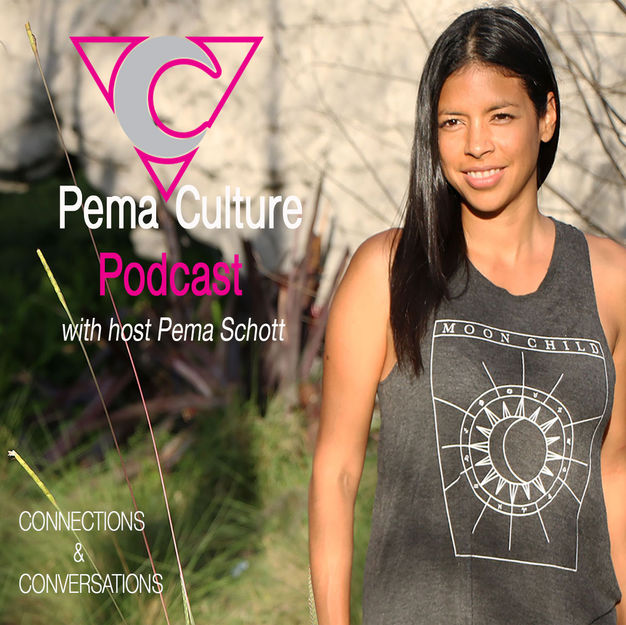 Pemaculture Podcast
Pemaculture Podcast
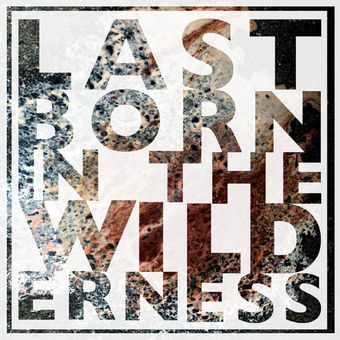 Last Born In The Wilderness
Last Born In The Wilderness
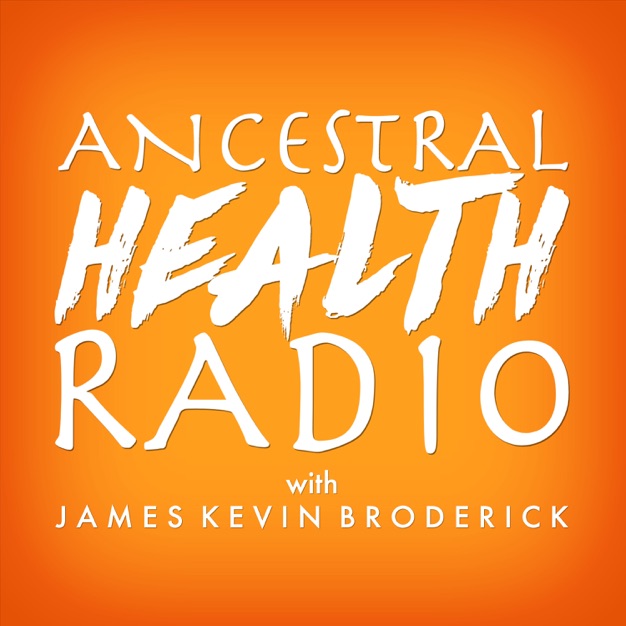 Ancestral Health Radio
Ancestral Health Radio
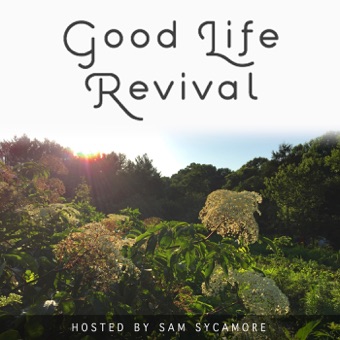 Good Life Revival: Permaculture, Rewilding, Homesteading
Good Life Revival: Permaculture, Rewilding, Homesteading
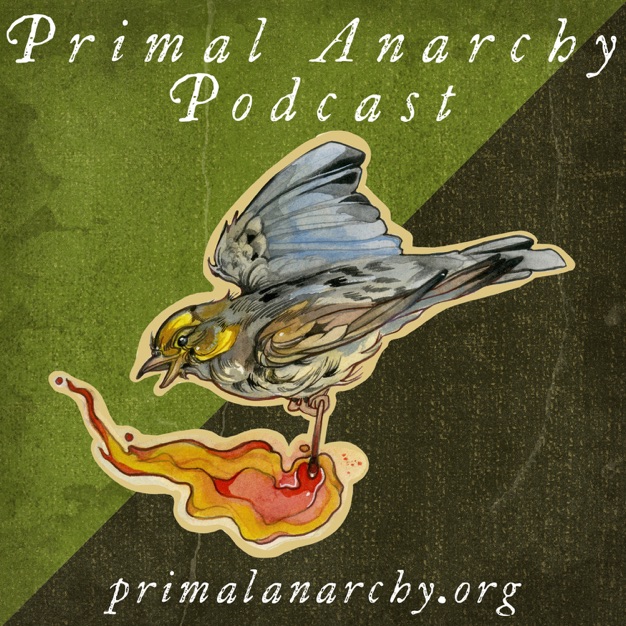 Primal Anarchy Podcast
Primal Anarchy Podcast